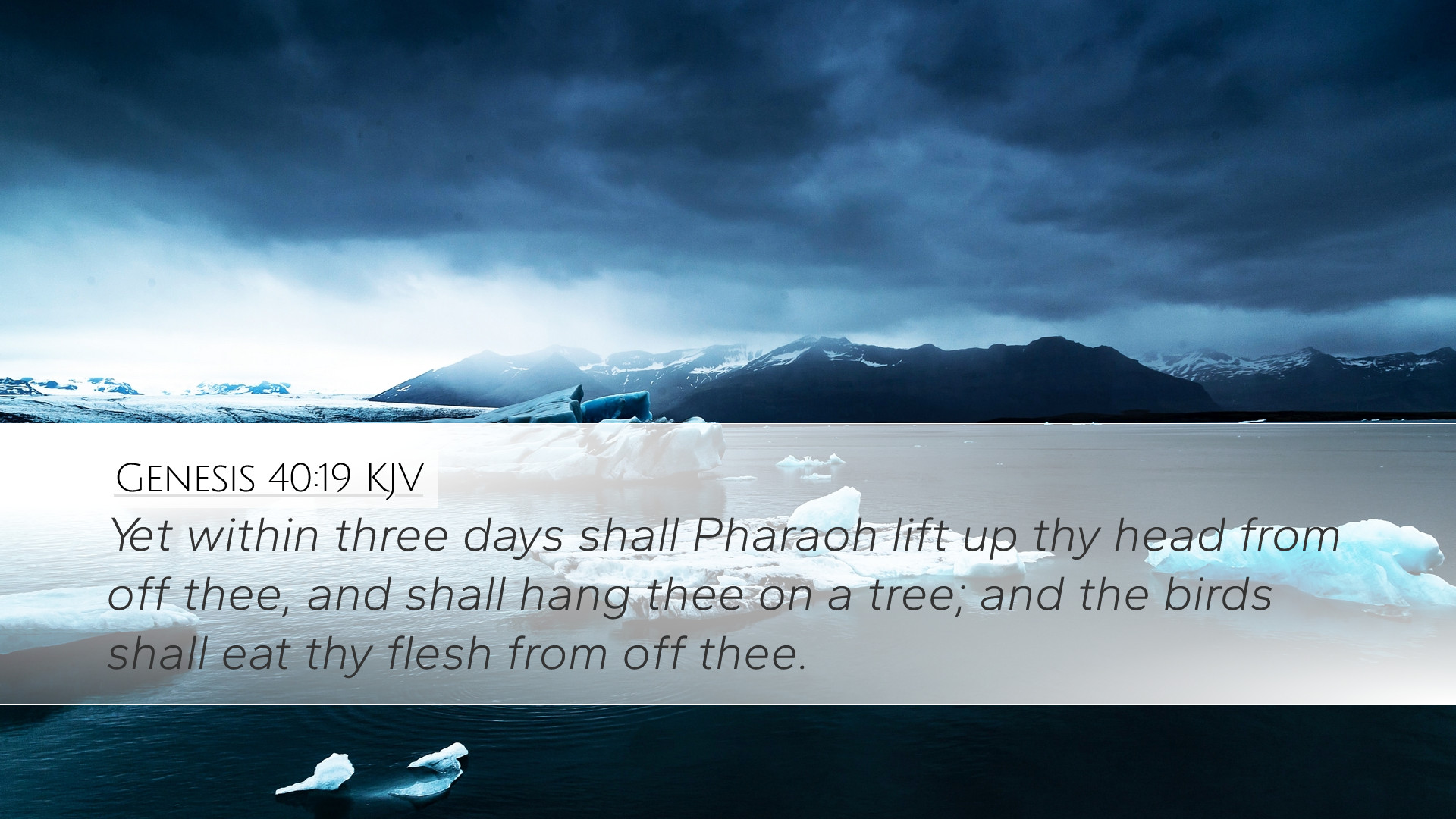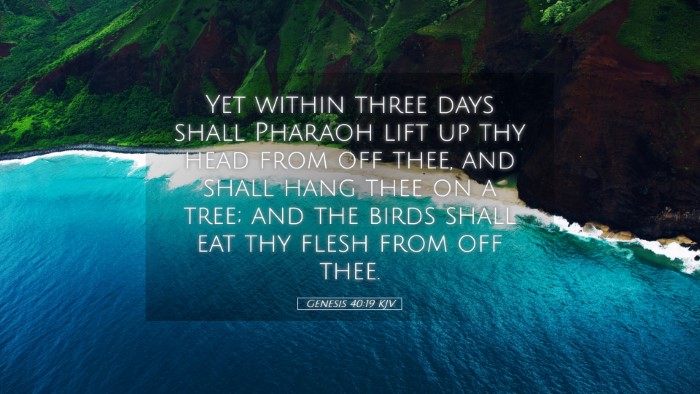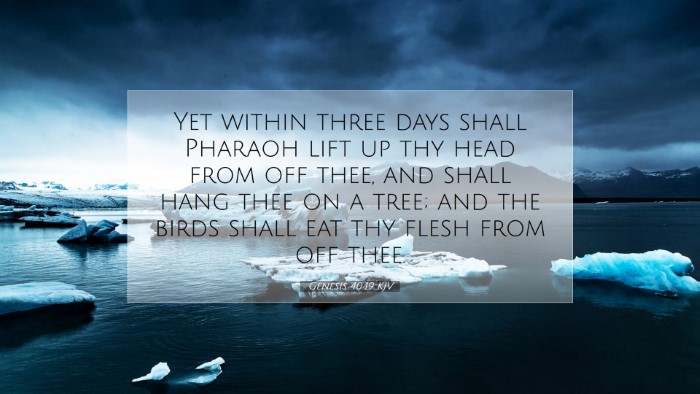Commentary on Genesis 40:19
Verse: "Yet within three days shall Pharaoh lift up thy head, and shall hang thee on a tree: and the birds shall eat thy flesh from off thee." (Genesis 40:19)
Introduction
The narrative of Genesis 40 introduces us to the unfolding story of Joseph while he is imprisoned, and how his interpretations of dreams become pivotal in his eventual rise to prominence in Egypt. The verse in focus (Genesis 40:19) delves into the prophecy concerning the chief baker, a man who finds himself inextricably linked to the fate of Joseph.
Contextual Analysis
This verse occurs in the context of Joseph interpreting the dreams of two prisoners: Pharaoh's chief butler and his chief baker. The interpretation serves as a poignant juxtaposition of hope and despair. The butler is promised restoration, while the baker receives a grim prophecy. This duality highlights the themes of divine sovereignty and justice, which resonate through the entire book of Genesis.
Commentary Insights
Matthew Henry’s Commentary
Matthew Henry notes that the interpretation given to the chief baker serves not only as a reflection of God's providence but also as a moral lesson about the consequences of one's actions. The baker, in receiving his punishment, represents the ultimate fate of those who defy God’s order. Henry emphasizes that the symbolism behind the hanging signifies the severity of sin and the corresponding justice meted out by God.
Albert Barnes’ Notes
Albert Barnes elaborates on the significance of the "lifting up of the head." He highlights that to “lift up” signifies hope and restoration, contrasting sharply with the baker's impending doom. Barnes explains that the imagery of the birds eating the flesh denotes not just the physical end but symbolizes disgrace and ultimate judgement against those who oppose God’s purposes. He articulates how the baker's life serves a pedagogical function, demonstrating the serious repercussions of pride and sin.
Adam Clarke’s Commentary
Adam Clarke approaches this verse with an eye towards the prophetic accuracy displayed in Joseph's interpretations. Clarke remarks that the three days until the fulfillment of the prophecy signifies a period of divine judgement. He underscores that the baker's fate serves as a stark reminder to maintain humility and reverence towards God’s authority. Clarke also propounds on the cultural and practical implications of execution in ancient Egypt, drawing parallels to moral decay and social justice themes that resonate throughout Scripture.
Theological Reflections
This verse invites profound theological reflection on the nature of God's sovereignty and justice. The grim illustration of the chief baker’s fate articulates a nuanced understanding of divine retribution, calling upon readers to contemplate the implications of their own lives in light of godly expectations. The immediacy of the judgement serves to remind believers of the continuous divine oversight guiding human destiny.
Application for Pastoral Ministry
For pastors and ministers, this passage offers rich material for preaching on the themes of sin, consequence, and grace. The dual interpretations provide a platform for discussing the hope offered through repentance versus the destruction wrought by pride. Moreover, it encourages reflection on God's ability to transform a dire circumstance into a testament of His mercy. Emphasizing the narrative context can also help congregations appreciate the depth of God's plans even within suffering.
Conclusion
Genesis 40:19 is a sobering yet instructive verse that serves multiple purposes within theological discourse. It illuminates the stark contrast between divine mercy and justice, reminds the faithful of the seriousness of sin, and embodies the hope of redemption present in the larger narrative of Joseph’s life. As readers contemplate this verse, they are invited to engage deeply with Scripture, drawing personal and communal applications that enrich their faith journey.


